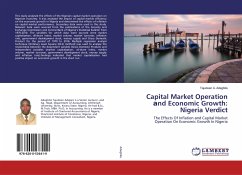Effort cho ces of employees are d rectly connected to a company s product v ty level and ts prof t. By address ng the ssue of wage compar son mpact on effort cho ces and mot vat on, more ns ght can be ga ned about the factors that nfluence employees dec s ons n general - what dr ves workers to exert more effort or causes absentee sm at work. Prev ous research showed that advantageous (compar son to those pa d less) and d sadvantageous (compar son to those pa d more) wage compar sons have d fferent mpact on mot vat on and effort cho ces of employees. The exact way n wh ch these two types of compar sons d ffer n the r mpact s the ma n quest on of th s work. Add t onally, a reader will find a set of factors med ating the relat onsh p between wage compar son and effort cho ces, and some interesting facts addressing gender and nat onal ty d fferences n mot vat on and effort cho ces.
Bitte wählen Sie Ihr Anliegen aus.
Rechnungen
Retourenschein anfordern
Bestellstatus
Storno








